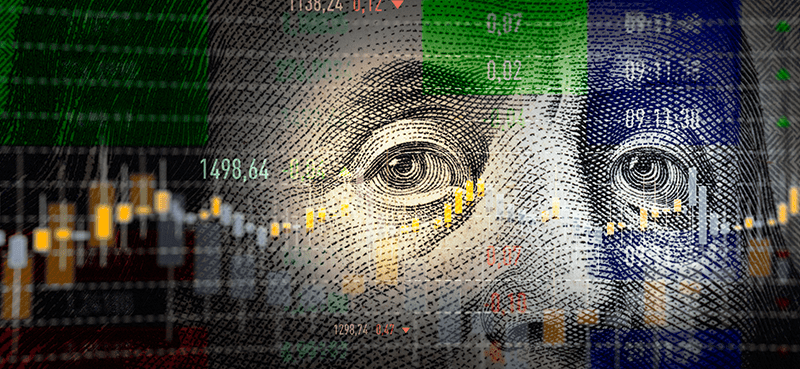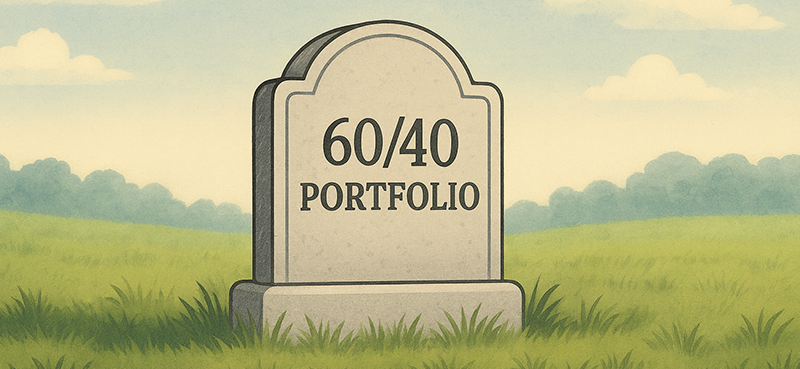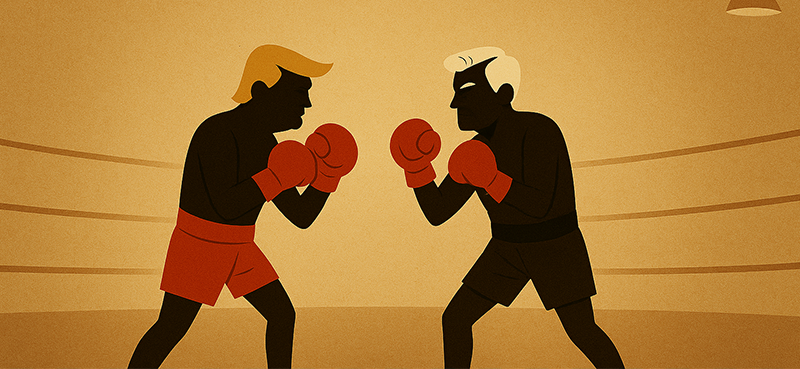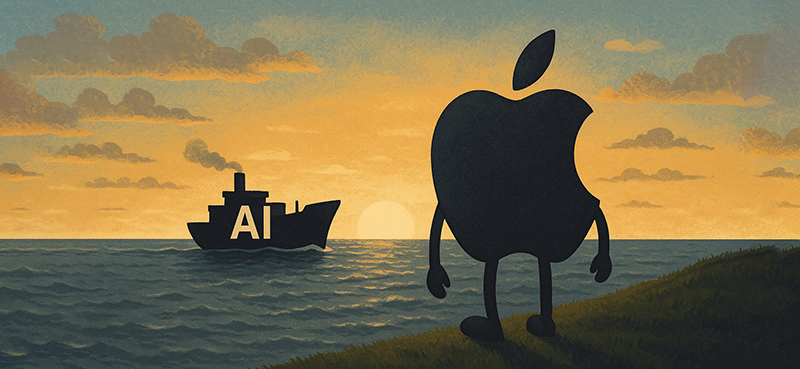I kick off today with March Madness… and some of the best matchups for the rest of the tournament. Speaking of basketball… I just got back from my daughter’s first traveling tournament. I shed some light on the increasing travel demand I’m seeing. [0:17]
We all know inflation is causing prices to rise everywhere… And we should be prepared for them to soar even higher. [5:12]
The Fed recently raised interest rates for the first time since 2018… but it remains well behind the curve fighting inflation. I break down Fed Chair Jerome Powell’s terrible performance. [9:35]
Sectors like the auto industry are struggling amid supply chain woes. I explain which sectors will continue to experience volatility… and which ones to watch for opportunities. [12:05]
President Biden just signed a game-changing executive order for the crypto industry. I share how individual investors can make a fortune in digital assets over the coming years. [13:32]
One sector has been unfairly punished in recent years… But as interest rates move higher, it’s poised to reap the benefits. [17:38]
Higher prices will cause consumers to change their spending habits… and you may need to restructure your portfolio… [20:45]
Finally, I take a question about Disney (DIS). Longtime listeners know I’m bearish on this stock… Today, I explain what would cause me to change my tune. [24:26]
Frank Curzio
Ep. 870: A beaten-down sector ready to soar as interest rates rise
- Frank’s take on increasing travel demand [0:17]
- Why prices will keep rising [5:12]
- Jerome Powell’s terrible performance controlling inflation [9:35]
- Opportunities to watch for amid the supply chain crisis [12:05]
- How to make a fortune with digital assets [13:32]
- This beaten-down sector will benefit from higher rates [17:38]
- How to restructure your portfolio as consumer habits change [20:45]
- What would change my bearish tune on Disney? [24:26]
Wall Street Unplugged | 870
A beaten-down sector ready to soar as interest rates rise
Announcer: Wall Street Unplugged looks beyond the regular headlines heard on mainstream financial media to bring you unscripted interviews and breaking commentary direct from Wall Street right to you on main street.
Frank Curzio: How’s it going out there? It’s Tuesday, March 22nd. I’m Frank Curzio, host of the Wall Street Unplugged podcast, where I break the headlines and tell you what’s really moving these markets.
Frank Curzio: Man, my bracket is so done at Tennessee winning it all, Baylor in a final four, gone. We did see TCU almost beat Arizona. That would’ve been a good call, which is meaningless, since again, I’m pretty much out of it, but how great is March Madness? It’s the greatest sport, and it just keeps going and going and going. I mean, you’ve got St. Peter’s who was that small school. This year, St. Peter’s beating Kentucky, arguably one of the biggest upsets in history of the tournament, arguably. And it went on to beat Murray State, who was red hot. You have Michigan beating Tennessee, which is a great game. And then what do you have? Great match-ups next week, and they just continue. Houston, Arizona’s going to be great. Duke, Texas Tech, Kansas, Providence. Providence looks great. Carolina, UCLA. Hard to see any team playing better than North Carolina right now.
Frank Curzio: Miami looks great. They’re a 10 seed, but if you really look at their resume, I mean, undefeated against North Carolina teams during the regular season. Think about that. That’s North Carolina, Duke, Wake Forest, North Carolina State. I mean, you didn’t really know that going in with Miami, but they look awesome. Can’t wait till next weekend. Just the greatest sport, the greatest sport.
Frank Curzio: But that said, I didn’t get a chance to watch a ton of basketball this weekend because my oldest daughter had her first games for her travel team in basketball, which was in Gainesville, and Gainesville is only two hours away. Hear me out. Going to get into a lot of crazy stuff right now. Just telling you this personal story first. Yet, it was two hours away, but I had to get a room for the weekend. So, it’s the first game, which is crazy, and we got the schedule a couple days before. The first game was at 7:30 AM, so there’s no way I could drive here and get there unless we were leaving at 5:00. The next game was at 6:00 PM on Saturday. Then, we had a game on Sunday at 1:00 PM. Right? Doesn’t get worse when it comes to scheduling. I know a lot of you do travel stuff. This is my first travel team, and it’s insane. It’s just insane, the schedule.
Frank Curzio: But the reason why I’m sharing that with you is because when you’re looking at the hotels, there are basically no rooms available in Gainesville, in Gainesville. I don’t even know what was going on in Gainesville. I don’t think there was any basketball going on for the tournaments and stuff like that. But it was just, every hotel was practically booked. So, I wind up finding a Best Western, which was a decent hotel, decent. And it was over $300 a night. And almost every single hotel that I looked at was more than $250 a night with fees.
Frank Curzio: So, I paid over $600 for the room, which by the way, after the first day I went there and my wife met me because my other daughter had a gymnastics meet in Georgia, so she met me Saturday for the second game. So she came down, but after we left, I was like, “Hey, could I have someone clean my room?” They’re like, “Oh, they left. They’re gone for the day.” I’m like, “What are you talking about?” “Well, you have to request those services. Since COVID, you have to…” I said, “I’m paying over $300 a night. You can’t clean my freaking room? You have to request for you to clean my room?”
Frank Curzio: And then, I asked them when I first got there, I said, “Can I get a cot,” because my niece came with me, who’s also on a team, 13-year-old, so we had five of us staying in a room, which wasn’t that big because nothing was available. And they’re like, “We don’t have any cots.” “Well, we got rid of them during COVID,” like COVID was yesterday, right? I mean, you can’t use COVID as an excuse anymore. Come on. You just can’t. But they’re like, “We ordered more cots, and we didn’t get them in.” And I’m like, “So you don’t have any cots. Are, are you kidding me?”
Frank Curzio: And that’s again, if I was paying $75, $125, I would be like, “Okay, no problem.” You’re paying over $300 a night right now. And also, if you’re looking at the cost, over $200 in gas, easily, another $200 in food for five of us, it was $35 they were charging for the weekend to get into the gym for me and my wife. And then I think it was 10, $15 for my youngest. During their stay, they’re play in a tournament, they get in there for free.
Frank Curzio: So, we’re looking at roughly $1,200 in cost to stay two hours away from my house for the weekend. Think about that for a minute. And I want you guys to think about that for a minute. Because the summer comes up and you have your kids doing different things or going to different camps and stuff, the costs are out of control. I’m not sure how people could afford this. I mean, for me, I’m looking to change our habits. I’m looking to change. And if you’re looking at the average family out there, how could they afford something like this? And the rest of team she plays lives in Jacksonville. We’re moving to Jacksonville, but our house isn’t going to be built for another six months, so it’s an hour ride for them.
Frank Curzio: So, a lot of them didn’t have to drive back… They were able to drive back and forth. They didn’t have to book a hotel. But it’s getting to the point where people are going to start, they’re going to say forget it, I’m not traveling. It’s just too expensive. I mean, you look at hotels, airlines. Oil prices did decline, but back over a $100. Food prices through the roof, and what these places are charging right now is absolutely insane. It’s not sustainable. It’s sustainable right now. We’re okay right now, but you’re starting to see the foundation crack and you’re going to see earnings start to get hit for companies very, very soon as people do change their spending habits.
Frank Curzio: And look, if they can’t pass off those higher prices, which some companies, almost all companies have been able to do for now, then they’re going to have to cut expenses. That starts with employees, then marketing budgets since they’re based on a percentage of sales. And maybe they maintain sales or sales go a little higher, but with all the costs going up, if you can’t pass on those costs, you could see earnings get nailed.
Frank Curzio: And that’s not really factored into the stock market right now. I mean, those estimates are super, super, super aggressive. And we have Powell saying that inflation’s going to come back down at 2.3% in 18 months from now. Are you out of your mind? Are you out of your mind right now? That’s insane.
Frank Curzio: But we see this and when see those consumers and we say start closing their wallets, things are going to get ugly. And you have people sitting on a ton of debt. Many, many people, which you know, look at your neighbors, are living well beyond their means. They got used to that easy money forever, meaning low interest rates, rising salaries, which they had the upper hand in because companies need good workers, and these companies have really strong balance sheets. So, okay, we’ll pay you for now. That’s why you’re seeing wages rise, but how long can that continue, especially if you’re not seeing on the earnings end. You’re going to have to cut costs. You’re going to have to cut employees.
Frank Curzio: But if you’re looking at inflation, which is the key to all this, it’s not going away. It’s not going away. Guys, I tracked the statistics from numerous firms. I’ve been doing this for the past two years since COVID, seen the ups and downs. No bias here. I’m not trying to scare you. I’m not trying to be optimistic. I look at the data and that’s where I base my decisions on where to invest. That’s how I do. That’s how I run my business. And you look at the supply chain bottlenecks, and what you’re hearing out there is, “Hey, they’re easing, they’re easing again. It got worse and now they’re easing again.”
Frank Curzio: Okay. You know what? There’s truth to that. According to Goldman, they say that there’s 50 ships waiting at docks to unload compared to a hundred in January, so it’s easing. You’re right, it’s easing. You know what the average is for those ships, that waiting time, for pre COVID levels, talking about pre COVID? So, the January, February, before COVID really hit March in 2020, again, 50 ships waiting now from a hundred in January with 50 ships waiting. The average is two. The average is two. So, how do you see inflation easing in the short-term based on this data?
Frank Curzio: And remember, these are all those goods trying to get to the places like Nike or whatever. Nike just reported great earnings because they have pricing power. They raise their prices. But it’s going to get to the point where you can’t raise prices and they don’t have the inventory. Even with commodities and building, it’s at 30 year lows, inventories. And it takes a long time, especially when it comes to metals and things and aluminum or whatever, rare earth metals, stuff like that that you just can’t turn it on. Oil is a couple of months, not as bad. You got to get the drilling rigs in place. Starting from scratch it takes a little bit longer, but some of these things are capped or you open up levels of drilling, and these guys can get it done pretty quickly in months. Well, you can get a lot of supply in the market. It’s not like that with the metals, not like that with most commodities, not like that with food.
Frank Curzio: So, where do you see prices easing? And these guys don’t have anything to sell. They have some stuff to sell, but you’re going to see prices continue to rise, inflation continue to rise. Companies are going to be forced to raise prices in a market where we’re going to see wages start tailing off, because that’s where the cuts are going to come first because that creates an immediate impact. That helps the most. When you cut salaries, that helps the most, and you pay a charge and you pay them over whatever, how long they’ve been there and, again, severance and stuff. But now, those costs are off your books, you become a leaner company, but what are we going to do here?
Frank Curzio: So, I’m not sure what’s going to change this, at least over the next six to 12 months. How does this end? And we could see good news out of Russia and the Ukraine conflict, which may result in oil prices moving a little bit lower here, maybe to 75, 80 bucks, but those supply chain bottlenecks, they’re not easing anytime soon. No way. Fifty ships are still waiting. 50 ships are still waiting. You’re still seeing a huge demand for so much stuff. You think it’s going to change overnight? Are you crazy?
Frank Curzio: And you look at inflation. Inflation is like tear your Achilles in basketball or any other sport. It doesn’t matter who you are. You could be LeBron James, you could be Tom Brady. Roger Fed… It doesn’t matter. If you tear it, you’re out for a year. That’s it, you’re out for a year. It doesn’t matter who you are or whatever it is, what you could say, you can’t do anything about it. With inflation, you can’t do anything about you. You can’t.
Frank Curzio: You’re looking at the market rally, especially in growth stocks, it’s done at least for the next year or maybe longer. The fed can’t come in and help you anymore. They were there at the big punch bowl. You, you get a bailout. Oh, you, you need money here. Here’s something for your kids. Just throwing out money like it’s just, hey, here you go, trillions and trillions of dollars. That cures the problem temporarily. It’s what the Yankees or Red Sox would do if their team sucks for the first half of the season. Now, what do they do? They spend two, 300 million on the best players and the shittiest teams ahead of the tread deadline to make the playoffs. That’s the formula for baseball right now. It sucks. But that’s the formula. When you have money, you could spend. When you have money, that cures a lot of problems.
Frank Curzio: Money cannot cure inflation. You have to take money out of the system. You can’t cut rates by only 25 basis points with power hoping, right? Hoping that inflation, the problem that you started just starts easing by itself. It doesn’t happen that way. That’s why I was making fun last week. People saying, “Oh, you know what? The Fed, they’re not going to raise by that much. Powell doesn’t have to raise by that… I can’t see them raising by that much.”
Frank Curzio: What do you mean you can’t? They don’t have a choice. It’s not like you could sit there and be like, “Oh…” You really think that if they could really just raise by 25 basis points and control inflation, they would do it. They can’t. They know that. That’s why, how many Fed governors, how many Fed members came out… How many came out over the past few days, right after the Fed meeting and said, “It’s way too slow. We have to go much…”
Frank Curzio: And, and it’s funny because Powell, who testified, who wrote this massive freaking thing, and just, again, word for word reads it off to Congress, all of a sudden came out yesterday, out of nowhere and said, “Oh, we might have to be a little more aggressive.” Why didn’t you say that a couple days ago or last week? Why didn’t you say it last Wednesday? It’s amazing. You had everything written out. What changed from that week to this week? It’s the Fed government’s going, “Powell, you’re going to make yourself look like an asshole if you keep this pace,” which is 25 basis point hikes, “You’re going to look like an idiot. You’re ruining our credibility.” And that’s why they all came out and said, “We have to go faster and faster and faster because inflation’s out of control and it’s not going to… unless we take money out of the system, there’s no other choice. No other choice.
Frank Curzio: I don’t want to be the bearer of terrible news here. Again, it’s the data, it’s reporting to you. That’s why I look at these supply chain things. So, I knew the Ford CEO, the GM CEO, they’re full shit a year ago saying that, “Hey, you know what? 2021, we’re good at the end of this year for a supply chain issues. That’s why we’re going to produce all these EVs.” Are you kidding me? And we’re seeing the people who track this the most are lowering their estimates. And I’m saying that most, for 25 years, they’ve been tracking supply chain issues and supply chains all over the world. And they lowered their estimates for car production by two and a half million, not just for this year, but for 2023, 2024. 2024. Are you kidding me? You know how long that is, 2024? You think you’re getting an EV really soon. Good luck. Order it now, you might get an 18 months if you’re lucky. If you’re lucky.
Frank Curzio: All those orders for Rivian that came in, those pre-orders, done. Can’t get a car out the door. Don’t have the parts. Like I said in past podcasts, it’s not every sector that’s going to be punished. It’s not like the market’s going to absolutely crash. We’re down a lot. There are opportunities out there and commodities that continue to buy and pull back just so your uranium surge come down. Now it’s going back up again.
Frank Curzio: Looking at gold, gold finally… I mean, come on. If it doesn’t make more sense now than ever… Even Bitcoin, agriculture stocks, a lot of these are in our portfolio, but if you’re looking at Bitcoins over 42,000 again. 44 level is huge. I mean, how many times have we tested the 44 level since we really broke through and broke it down since November. Just hits it, goes below 40, hits it, goes below 40. If we break the 44 of the 44,000 level, we’re going to go right through 50,000 probably right away.
Frank Curzio: And we will break that level because of that major change, which is Biden’s initiative, because you’re looking at Biden. If you’re looking at the money, it’s important that he came out and said that, “Hey, the US wants to be the country for innovation when it comes to crypto.” And if you look at every major firm and all the most important people that manage the most money in crypto, every one of them came out and said, “This is great news,” even though nothing was done yet because Biden could have come out and said, “Well, we’re regulating the whole industry, and everything is a security and you’re done.”
Frank Curzio: Now. You’re going to see money come into this market almost immediately. We just saw a great deal with Goldman Sachs sign with Galaxy Digital, more custody. Now, it’s opened up. Now, you have that at in place. And believe me, there’s lots of lobbying dollars for this. Lots of lobbying dollars for this taking place.
Frank Curzio: You know why for crypto? Because you have 250 trillion in assets under management. 250 trillion under management, and you have all of these clients saying that they want to get into crypto and alternative assets. They want to get in. Even JB Diamond said it. Listen, I don’t like it, but our clients want it, so we have to offer it or they’re going to remove their money from your place and go to some place that offers it. That’s what they want. That’s what they want, especially at a market that’s declining, that’s crappy because now you’re taking on even more risk, which is fine. But if you take on that risk, you want to make sure you have those massive returns, which can be offered in crypto, not to mention all the new innovations taking place there. All the new innovation.
Frank Curzio: D5, Metaverse, security tokens, NFTs. See the latest with Dave & Busters? Dave & Busters reported great earnings this week. Stock went up. Just went there this week with my daughter and niece at night. Pretty packed. But they just came out and said they’re going to try to start accepting crypto. They started with that, what is it, FTX exchange? Nobody really talked about that. That’s huge, accepting crypto payments? That’s what they’re looking to do. That’s why they signed that deal. They’re partnering with them. That’s Dave & Busters. That’s the other generation. That’s where everything’s heading. That’s where the innovation is taking place.
Frank Curzio: AI is not innovation. AI was innovative 10 years ago, 15 years ago and then they started building and building. Data analytics, 5G, these are trends that are existing that you’re building, making… I’m talking about innovation, changing industries forever like streaming did. That’s what’s happening in crypto. That’s why everybody wants to invest in it. That’s why it’s so huge.
Frank Curzio: So for me, I don’t care if it breaks a $44,000 level now. I don’t really care. What I do know is it’s going to go a lot higher in the future, and there’s lots of great, great ideas that people can make an absolute fortune on just like 2021. In 2021, yes, the market did good, but I can’t tell you how many big name cryptos, over 60 I can give you, big name cryptos that are up well over 1000% to well over 10,000%, just in 2021 alone. And that includes the huge decline we saw towards the latter half of the year.
Frank Curzio: But if you’re going to take on risk and lose 30% in small caps, why not take on risk in crypto because you expect a return. Your potential returns are five X more than buying traditional small caps. And it is risky, and yes, maybe you lose a little bit more if you don’t have a stop, but that’s the market. And people see that and say, “Hey, I want to be in this.” This is where everything is going. This is the new generation, the younger generation. This is what they’re doing right now. It’s not just crypto. It’s digital payments, everything.
Frank Curzio: Anyway, you look at inflationary environments. You’re looking at… Real estate’s going to do great. Yeah, you’re going to see higher interest rates, but still real estate, the price of real estate that you own is going to go higher and higher. Maybe it’s a little tougher to buy a house, which a lot of times increases is going to work in your home price going higher and have more demand for it, especially bigger properties that people will pay cash for which you’re seeing tons. I can’t tell you how many deals you see in tons of cash. Because if you’re looking at big deals where people own their own companies, if they owe more than 25%, it’s almost impossible for the bank to give you a loan. It doesn’t matter if you have 50 million in the bank and you’re looking to buy a 2 million house, they don’t care. They want to see income.
Frank Curzio: And if you have a 25% stake in any business, they consider that like your company, meaning that if it’s reporting losses, it comes right off your income. And a lot of people that make a lot of money, their income, especially if they own companies or publicly traded companies, it could be 250, 300,000, 400,000. Of course, that’s a lot of money, but it’s not like five, 10 million you see with the banks and stuff like that. But when you have a company losing a half a million dollars that comes right off your income. It almost says that you don’t have a job. But you’re like, “Wait a minute. I have 50 million here. I could buy 25 houses if I want.” “Nope. It doesn’t matter. It says in our algorithm that we can’t give you this loan.”
Frank Curzio: So, I can’t tell you how many loans people are using cash, but real estate’s a great investment. And also banks. Start buying banks aggressively here. They’ve been unfairly punished. Earnings are going to explode for these guys at higher rates, lead to increased net interest margins. And you have to listen to the last quarter of… Fortunately, I have access to this information, and you have firms that just cover the banks that put all these quotes, the top quotes of what the CEOs in this sector said. And you have to see what they’re saying about higher interest rates, how much money these guys are going to generate going forward. Massive, massive, massive amounts. The margin is going to explode as the interest rates go higher. Yet, a lot of these things are down. They got crushed along with the pullback in the market.
Frank Curzio: But probably one of my favorite sectors right now in terms of a risk-reward standpoint is banks. Throw one in there. We were early in Goldman Sachs. It went all the way up. We had huge gains on it. Pulled back about 25%, 30%. We still hold onto it because in very… I think we recommended it around 200 bucks, and it went to 400 and whatever it is. It went to 3, 323, wherever it is right now. But for us, we went in so early, it pays the whole… I mean, Goldman, JP Morgan, throw a big bank in your portfolio right now. At least you’re getting a 20, 25% discount where it’s a certainty that earnings are going to explode for these guys. They’re the best places to be in a rising industry environment.
Frank Curzio: But be careful out there. Stocks with high valuations are still dangerous. I mean, it’s not easy to grow earnings at the same pace, and it’s hard to see that because we’re so used to that over the past 10, 11, 12 years since the credit crisis of just the Fed throwing money at it, earnings, projects getting funded, the massive, massive growth.
Frank Curzio: We’re not going to see the same pace that we saw in previous years. Not with these massive headwinds, not with rates rising, supply chain bottlenecks, and the consumer, which I’m telling you is going to start reining in their spending soon. They have to. The costs are insane. Anybody that listens to this knows. You’re seeing the bills that you’re paying. It’s getting to the point where they’re just like, “Fuck it. Let’s charge another $50 fee. Another $75 fee.”
Frank Curzio: I stayed in Miami two weeks ago on business and Expedia and everything, full price, and then they said, hey, okay. They gave me the key. It was like a hotel/mini condo type thing. It was the only thing that was available that was actually nice. And they said, “Hey, you have to stop by the office because you have to pay another $50 fee.” I said, “What are you talking about?” They’re like, “Oh…” I said, “How come it’s not factored in when I booked on Expedia?” They’re like, “Well, it’s an extra fee.” An extra fee? So, they were charging extra fees on top, and I’ve been using Expedia for easily over a decade, probably two decades. And now you’re charging? Usually they say the full price, all in. It says $225 a night. And then it says $280 a night with all the fees, right? And then, for two nights, it adds up. It says, this is your full cost. Now, I had to go back and pay another fee. I mean, how much could the consumer bear?
Frank Curzio: I mean, could you see the average family paying 8,000 to go to Disney for five days? That’s the cost. That’s the cost. If you look at a lot of sites, I track this stuff, which, includes $250 a night for hotels for five days, food at Disney, travel back and forth in shuttle buses and also flights. However, what if you want to do something at night with the kids, Blue Man Group, whatever. You want to go shopping, upgrade your room, have fast passes, rent-a-car, gas, snacks. You going to pay 10 grand for five days? 10 grand. You know how much that is for the average family? But I don’t even know what the average… What’s the average income per family these days, 50, 60,000? I don’t know. Am I off on that? Last time I looked, 10,000 for a vacation to Disney for five days. You’re not going to Europe. This is a new reality. This is a new reality.
Frank Curzio: I’m not saying we’re not going to see the occasional rally in growth stocks, which we saw last week. But a lot of that’s going to be short covering, people on the wrong side. You could tell by the massive volume. So, you’re not seeing those big, long term funds. They’re not putting their money in these names and holding them for years, the algorithms floating back and forth, you’re seeing the massive volumes. This isn’t like, “Wow, these things are cheap now. Let’s jump in and hold on for the four years.” You’re not seeing that. You almost say it gets to a point that you have to adjust your portfolios.
Frank Curzio: All right, how do you keep this sustained? How do we go back to that growth market? What do we need? We need growth catalysts. You need supply chain issues to ease. You need inflation to ease, which is not going to happen in the short-term. It just won’t. The math is there. It’s not going to happen in the short-term. Until then, when it comes to growth, it’s a sell the rip environment, which is a lot different, the opposite environment we had for the last 10 years, which is buy the dip, just buy the dip, buy the dip. Feds there, buy the dip. Zero interest rates, buy the dip.
Frank Curzio: Nope, no longer. You don’t have zero interest rates. And they’re going a lot, lot, lot, lot higher, especially for Powell to come out today and say, “Hey, the next meeting, we might go 50 basis point hike.” Why the hell didn’t you say that last week? Because all these governors said, “Look, you’re going to look like an idiot. We already lost credibility to the Fed. We spent all this money. We said it was going to be transitory. We said at 2% we’ll start raising at 7%,and we just started raising. How is inflation going to get under control unless you raise rates, unless you take money out of the system? It won’t. So, you got to do it. If you want to do it slow, this is a three, four year problem. If you want to do it quick, it’s a year problem. It’s up to you, but you have to do it. You have to do it. You have no choice.
Frank Curzio: I have some time here, and I’m got to take a question. This is from Ron. I’m taking this question here because… Just one question because I’m getting a lot on it, and it’s a really good. It’s about to Disney, and I’ve gotten several questions on it. So, that’s why I’m taking this one.
Frank Curzio: So he goes, Ron asked, “I know you’re negative on Disney. I saw the article this week about Disney where Iger and the new CEO, Chapek, don’t like each other. So, you think that could lead to a change in management in the future, and would that make the stock a buy?
Frank Curzio: The quick answer? Yes. So, the quick answer is yes. And when, again, it’s about the numbers, the data. It’s not like, “Hey, I hate Disney forever,” and I don’t hate Disney. He’s a great guy. I just don’t like where the stock price was. And it’s down now. It’s really pushing lower. But if you look at the details, there are stories out there about Chapek’s response over the Don’t Say Gay bill, right? And that’s making news. That’s everywhere. That’s everywhere. And personally, I think it’s stories being pushed by insiders at Disney, because it’s not really a big deal. Not that I don’t believe it or not or whatever. A lot of people don’t even know what that is, what the… It’s being pushed a lot. And I really believe it’s by the insiders at Disney because they want them out.
Frank Curzio: So, here’s a guy that now has total control of his spending. Disney right now is in worse financial shape in its history, sitting on 40 billion in net debt. Five billion of that is due this year, which is a lot considering free cashflow is expected to be just 4.5 billion this year. It seems like a lot of money, 4.5 billion, until you throw in the 33 billion in new content spend that they’re projecting, that’s their number, they’re projecting, and they’re going to be projecting it every year for Disney+. That’s new content, which is what? We know, a super low margin business, highly competitive, but you’re looking at Disney, it’s still a really expensive stock here. Even after the selloff, it’s traded 25 times forward earnings. That’s very expensive. I mean, that market multiple usually deserved to be trading much more than S&P 500, when you’re actually seeing massive growth. This company’s not seeing that massive growth.
Frank Curzio: But if you’re looking at Chapek, he’s behind the scuffle with Scarlett Johansson, where he stopped paying her salary after she’s pissed off that Black Widow was available on both streaming and in the movies at the same time, which was not in her contract. And what did this guy do? He attacks Scarlett Johansson, saying that she should be more sensitive to COVID and throw… And people are dying. I mean, this is Disney. You don’t say shit like that to A-listers. You’re Disney. That never happened in the history of Disney. You never saw a spat between them and an A-lister, going back and forth on contract negotiations. No way. They meet with them and say, “What do you need? Because you could generate so much more money for us in the future. What can I do for you?” And it’s not just Black Widow, right? It’s Marvel. She’s a part of a lot of those. You’re really going to piss that person off?
Frank Curzio: But Chapek did that without even consulting Iger. And it’s a big deal since Iger, and he says this, he prides himself on having great relationships with A-list superstars. So make no mistake, Iger is Disney. He’s a big shareholder, tons of contracts in Hollywood, knows the biggest people. I mean, Steve Spielberg sat at his going away party at Disney last year. Steve Spielberg sat at his table, which was pretty cool. He’s the guy who purchased Marvel, Pixar, Lucasfilm, three of the greatest asset purchases you could argue in entertainment industry over the past, at least decade, probably longer, and he doesn’t like Chapek.
Frank Curzio: So, Chapek’s contract is due in 2023. That’s when it comes up, unless we see Disney get to 230 million plus subscribers next year, and that’s Disney+ from 125 million today, which is the goal. And by the way, they’ll probably easily meet that number since they’re going to be mostly free names through more partnerships like Verizon. I mean, I’ve got it for free forever. That’s why the average revenue per user is the lowest by far, $4 and something, compared to what, $16 now for Netflix, average 13, 4,000 in the industry.
Frank Curzio: But maybe he’s able to keep his job because that was a number that did push up Disney at first, especially during COVID. You’ve seen those numbers, go, “Holy shit, look how many names?” It doesn’t matter if they’re not paying, but they’re adding names. Holy cow, that’s great. Now those numbers matter. And now, when they miss their numbers and Disney, what happened? All the analysts said, “Oh, you know what? It’s not going to be 2021 when they come back. It’s going to take another year, so we’re not going to change our estimates. It’s just going to change, and it’s going to take another year.” I never saw analysts say that for every company ever that missed the earnings estimates. And they reported decent earnings last quarter, but still, to me, the numbers are amazing.
Frank Curzio: But this guy, to me, I don’t like him. I don’t like Chapek. Just talk about, “Oh, we’re going to get into the Metaverse.” Figure out streaming first. That’s your business. Don’t worry about the Metaverse. “We’re going to get into this. We’re going to get into that.” Just a cockiness.
Frank Curzio: I mean, he should be more like Tim Cook. When Tim Cook took over for Steve Jobs, and what he did, he never disrupted Apple’s culture. And yet, he led the company to the biggest, most powerful brand in the world. I mean, to put it in perspective, Steve Jobs, this is interesting, Steve jobs, he stepped down from Apple when he was sick, August, 2011. Its market cap was under $400 billion. Its market cap today’s 2.7 trillion. I don’t know if we would’ve got there with Steve jobs because Steve Jobs hates partnerships. He’s more like everything Apple. Maybe, but I don’t know. Holy cow. I’m not taking anything away from the late Steve Jobs here, but 2.7 trillion, not bad. We’re not disrupting the culture. Everybody loves Apple. It’s one of the greatest companies, greatest consumer products you could buy, the iPhones, the iPads.
Frank Curzio: Chapek is different. He seems more like a loner to me, wants to change things around, but not in an innovative or a good way since it’s pissing off a lot of executives. I mean, going all in on Disney+ is a dangerous strategy. He’s going to cost the company tens of billions of expenses. And I get it. You did it to create a Netflix-like multiple, and it was one of the only things you could do since you were most impacted by COVID, since it’s a consumer driven business and nobody could travel, nobody can go to plays, nobody can go to the movies. I get it. Let’s do streaming. We have no choice in going all in.
Frank Curzio: But now that Netflix, like multiple, that growth multiple dynamic, if I should call it, it’s clearly changed now that the fed’s aggressively raising rates and shrinking its balance sheet, that multiple is shrinking.
Frank Curzio: But the Don’t Say Gay Bill debacle have no doubts being fed by the Disney. Insides, those guys want them out. That’s what Iger wants. And from Iger’s standpoint, look, it’s not easy giving up control of the greatest media brand in the world than watching someone else come in and start pissing off A-listers, restructuring divisions to where everyone from ESPN to parks has to report to you whenever they want to spend a dollar.
Frank Curzio: And everyone’s looking at these moves, which are being made by Chapek. It’s not innovative. It almost to create more power. At least that’s the perception, which is obviously disrupting the culture.
Frank Curzio: So with that said, if he is gone by next year, I think Disney is worth buying, especially if they decide to lighten up on Disney+, maybe start licensing out its existing content, which is absolutely massive. They have a ton of it, and every streaming service is dying for or pay a fortune for it right now. They’re dying for content. Like I said, existing content because creating new content is a fortune. And that’s what streaming is all about. That’s what you need to keep streaming customers engaged to the point that they’re not going to cancel. They’re going to continue that monthly payment. It’s new content. They’re not going to stay to get content that get all the Marvel movies you can see on TNT, which is Time Warner. End Game, they could put all of them. You’re not going to subscribe to a service for… Again, maybe you want to see a couple of these, but you want to see the new content. That’s what keeps you engaged.
Frank Curzio: They’re throwing strong demand for its parks. They do have pricing power, movies coming back online, there’s people going to the theaters. You could see some strong growth there, but right now, expenses are still huge, debt is massive, and while they’ll likely beat estimates in the cores ahead, only because the analysts are purposely keeping them as conservative as possible because they were so fricking wrong on Disney’s earnings projections over the past year, you might see that.
Frank Curzio: I mean, Disney’s only expected to earn $5.60 in 2023, so over 18 months from now. Let’s put that in perspective. It’s less than what the company earned in 2019, pre-COVID. Everybody’s earnings are surging. They went to record levels, not Disney. And it’s less than what they earned in 2019. And that’s not a fair comparison, because 2019, they paid $71 billion to acquire Fox’s entertainment assets to the top of the market.
Frank Curzio: The right comp is 2018. That’s where they peaked in earnings in over $7 a share. They’re supposed to generate 5.60 in 2023. How are they going to do that, spending over $33 billion on new content and charging $5 a month or whatever for streaming in a highly, highly, highly competitive market. Chapek gets outed and he starts licensing their content or do a license deal with maybe Apple, Google, Amazon, names that could write a $20 billion check like it’s nothing and pay royalties for decades and get access to Disney’s massive library, to me, that’s a solution. That’s easy. Now you could build up your parks, you build up the theaters, you build up everything and license your content to the 50 streaming providers that are dying for content instead of you just creating this whole platform.
Frank Curzio: Again, you see the numbers, it’s not working, let’s see how long they go on. Eventually, they’re going to cut back on Disney+ and say it’s just not worth it. They’re going to do that. It’s a matter if you want to cut it now, which great companies cut fast. I’m not saying get rid of Disney+, but start licensing out some of that content instead of paying $33 billion, or you could do it two, three or four years from now, but you will do it. Trust me, you will do it when it comes to Disney+. There’s going to be a different strategy there. They need to implement a different strategy because they can’t afford to pay $33 billion a year on new content when all their competitors, their largest competitors, are spending the same thing and companies like Time Warner are generating 30, 40, $50 billion in free cashflow from so many of the businesses. Disney’s not doing that. They don’t have that recurring revenue stream.
Frank Curzio: But Disney+, all streaming services outside Netflix, Time Warner, I mean these guys generate a huge cashflow to support their new content spend. It’s just a terrible business, and Disney has to change, and I think Chapek is going to be out by next year. That’s my prediction. And if it is, then Disney’s going to be a very, very strong buy.
Frank Curzio: So guys, that’s it for me. Questions, comments, feel free to email me at frank@curzioresearch.com. That’s frank@curzioresearch.com. We’ll be on with Daniel tomorrow. Really exciting stuff, breaking down the markets. That’s getting a lot of traction. Everybody likes that one with Daniel and I going back and forth and debating the hot topics. But tune in tomorrow for that, and I’ll see you guys then. Take care.
Announcer: Wall Street Unplugged is produced by Curzio Research, one of the most respected financial media companies in the industry. The information presented on Wall Street Unplugged is the opinion of its host and guests. You should not base your investment decisions solely on this broadcast. Remember, it’s your money and your responsibility.
Editor’s note:
Runaway inflation… major supply shortages… and a Russian invasion…
We’re living in crazy, volatile times… Which is why, if you’re not following the Moneyflow Trader strategy, you’re setting yourself up for potential disaster.
Since taking over as editor two years ago, Genia Turanova has closed, on average, one triple-digit winner every 10 weeks.
Don’t miss her next one—sign up today.





















